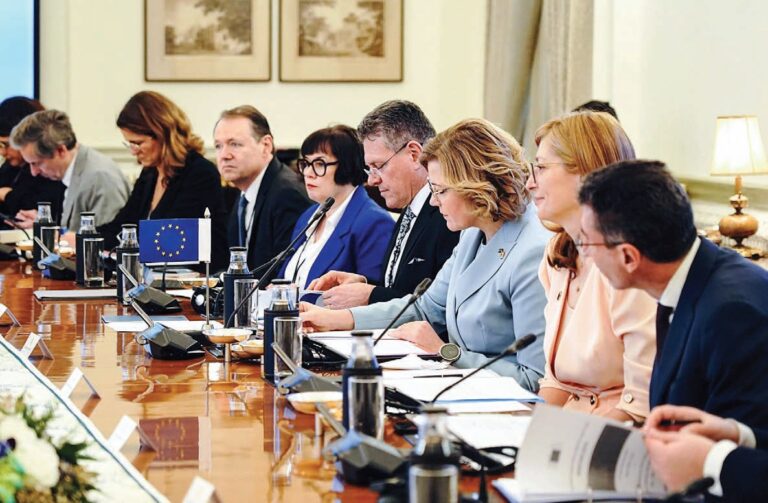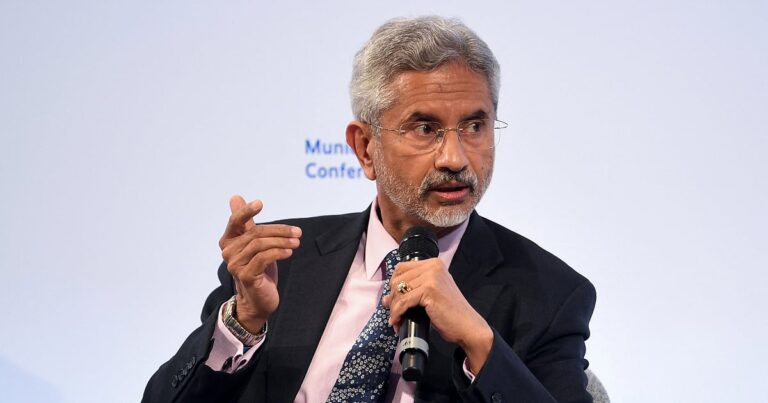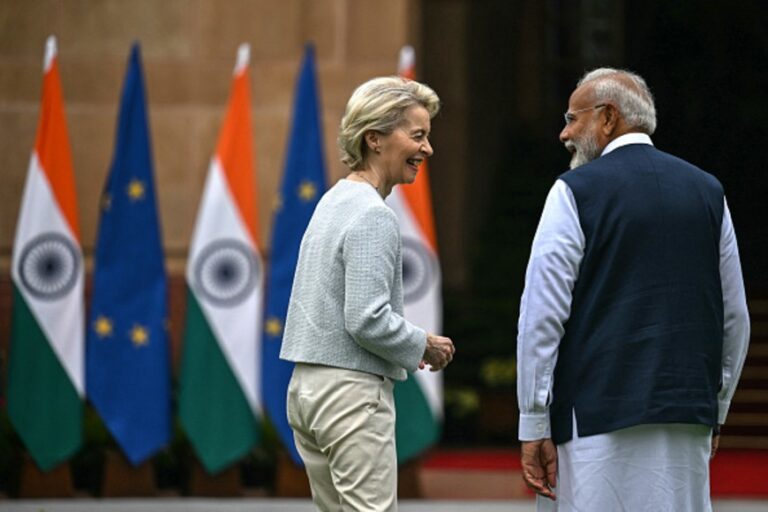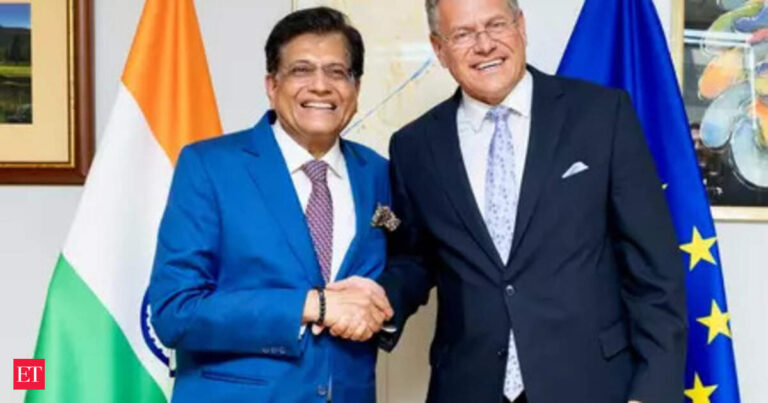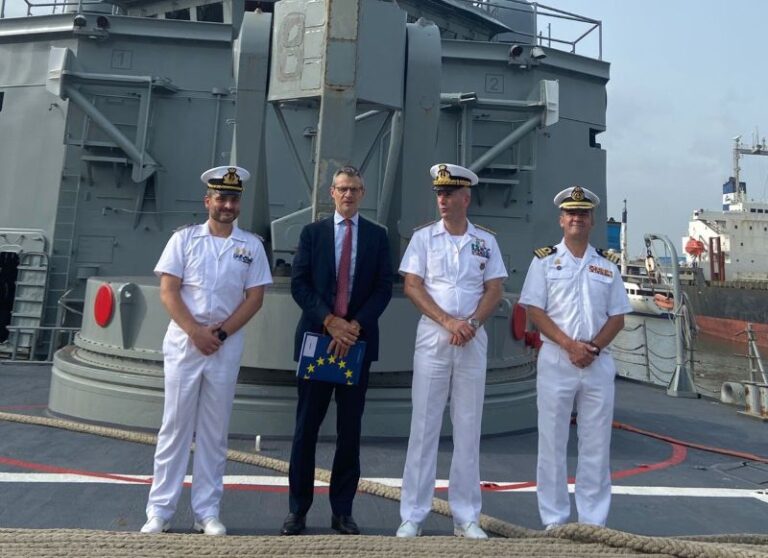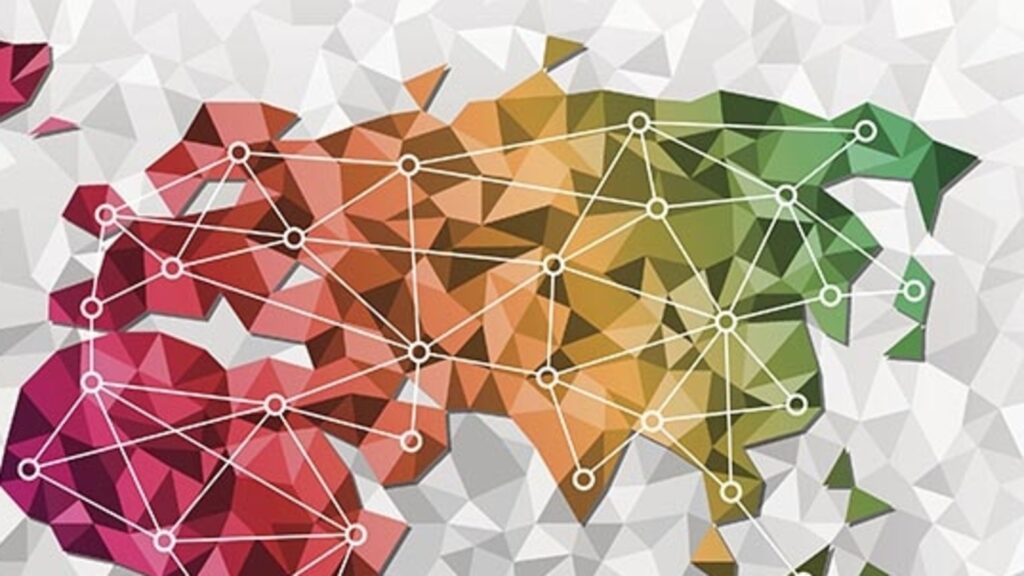
With the start of Donald Trump’s second presidential term, the world has entered a period of geopolitical uncertainty and confusion. The West no longer exists, the United States (United States) has turned its back on its European allies and decided to trust Moscow rather than in Brussels. The European Union (EU) in particular has been declared opponent by Washington. Given these developments, the union and its member states will have to find a strategy to protect their global interests. This consists in examining existing relations with other international partners and strengthening existing partnerships – in particular that with India.

Already from the moment she took office in December, the president of the European Commission (CE), Ursula von der Leyen, clearly indicated that India was in sight, perhaps feeling the way the world was about to change. And indeed, his first bilateral visit after starting her new mandate as president of the EC was in India on February 27 and 28, accompanied by the almost complete college of the EU commissioners – another first.
The importance of this visit can hardly be underestimated. The contrast with the last ten years could not be more severe. In the world before January 20, 2025, the EU and India considered themselves important partners, cooperating in a very wide variety of areas, but a large part of the interaction between them took place at the bureaucratic level. While India has made efforts to engage with the Union at the political level, in particular since 2016, the latter’s political leadership had a rather passive attitude in this relationship.
The same cannot be said of the states of the members of the EU, including the heads of state and the government, as well as the ministers, regularly go to New Delhi.
India tends to see the world in geopolitical terms as dominated by the triangle of the United States-China-Russia. It is positioned in relation to the evolution of the relative forces of these three actors, as we see through the prism of its own interests. This philosophy of foreign policy is called “strategic autonomy” by New Delhi. Where does the EU integrate into this whole vision of the world? Although the justification for this EU-Untreach improvement in India is obvious from a European perspective, you have to ask yourself if New Delhi feels the same need for a closer relationship with the Union. Does India consider the EU as a potential alternative global partner in this new world of transactional Trump-in a world where the right could be?
There is no reason why Russia-Indre’s relationship changed. It is based for both parties on solid realities such as Russian oil exports in India and India’s dependence on Russian military equipment. Prime Minister Modi’s first bilateral visit, after starting his third term, was in Moscow. The Minister of Trade, Piyush Goyal, met his Russian counterpart on the sidelines of a BRICS – in July 2024 to discuss means to increase bilateral trade. India National Security Advisor Ajit Doval met President Vladimir Putin in September 2024. Defense Minister Rajnath Singh went to Moscow in December 2024 for the 21st meeting of the Intergovernmental Commission of India-Russia on military and military technical cooperation.
On the contrary, the softening of American-Russia relations will eliminate part of the pressure on India concerning its purchase of Russian oil or its neutral position on the Ukraine War. This could possibly reduce Russian dependence on China – a factor that is still worried about New Delhi.
Relations between India and China began to relax in the second half of 2024, after being frozen by New Delhi for four years. While India has a solid trade deficit with China and clearly needs Chinese critical supplies for its manufacturing sector, a reality recognized by the 24-25 economic survey (published by the Indian Ministry of Finance), China seems to have decided in 2024 that it was better to reduce its aggressive military posture in the direction of real control (in Ladakh and in other places), come. Relaxation of its relations with New Delhi could also reduce the Indian need for reassurance via its quadrupled partners – the United States, Australia and Japan.
The unknown factor is of course what Trump intends to do for or with China.
For the moment, New Delhi is trying to assess how much Trump values the importance of India.
At the bilateral level, the signs are reassuring for India. The Minister of Foreign Affairs, Jaishankar, after having attended President Trump’s swear ceremony on January 20, attended the Ministers of Foreign Affairs to meet the next day and had a bilateral with Secretary of State Marco Rubio. This was quickly followed by a visit to Prime Minister Narendra Modi in Washington on February 11 and 12 during which Trump “stressed the importance of India increases its acquisition of security equipment manufactured in the United States and heading for a fair bilateral relationship.” Modi and Trump stressed their commitment to advance the “American strategic partnership of India and the Indo-Pacific Quad partnership, with India welcoming quadrical leaders for the first time later this year,” the press release said.
We do not yet know how Washington sees the future of Quad, the quadrilateral security dialogue which was relaunched in 2017 during the first presidency of Donald Trump. A quad meeting of foreign ministers took place in Washington the day after the inauguration of President Trumps, and his closing declaration repeats most of the anterior quad announcements concerning Indo-Pacific, such as the importance of maintaining international law, democratic values, sovereignty and territorial integrity. The next summit of quadruple leaders will take place in India.
The general opinion in New Delhi is that India has little to fear from the new exemption from Washington. While Delhi waits and has already felt American pressure in the field of foreign trade and immigration, New Delhi believes that India’s geostrategic position is such that Washington will continue to see India as an important partner in Indo-Pacific and a potential counterweight to China.
India, on the other hand, needs the United States in the fields of external trade and technology, and the United States is certainly willing to oblige.
Taking these elements into account, we can conclude that the world changes, which are currently taking place, do not seem to present difficult choices to India. It is in a relatively comfortable position.
The EU commission proposal has become a potential global alternative partner for India in this new Trump transaction world – in a world where power is right – should certainly interest India. For a huge country that deals with complex development challenges, constructive engagement with Europe will always be useful.
Although it was already clear for a while that Von Der Leyen intended to pay more attention to India than she had done in the previous five years, the moment of the aforementioned visit could not have arrived at a more symbolic moment. The very recent rupture of the transatlantic relationship has proven how appropriate this awareness is appropriate for India. With the American-Russia-China triangle in flow, the visit to EC in India has gained additional importance. The past few weeks have shown that the EU should target other important allies in the world because it is now clear in a geopolitically lower position. The President of the Commission, referring to new geopolitical realities, said that she wanted to bring the EU-Indian partnership “at the next level”, with a particular emphasis on defense and cooperation in terms of security.
The results of the visit from February 27 to 28 are varieties and could indeed lead to a substantial deepening of the relationship. To begin with, the EU and India wish to conclude the negotiations of the free trade agreements by the end of this year. Given the complicated nature of these talks, this is a very ambitious objective. From the point of view of India, trade is still the main EU-India-Topic. To avoid delays on the technical level, political leadership on both sides will however have to closely monitor the progress of these negotiations.
In addition, India has expressed interest in joining projects under permanent structured cooperation of the EU (PESCO) as well as engaging in negotiations for an information security agreement (ENIA). The leaders also undertook to explore a security and defense partnership. ” (Declaration of CFR managers after the visit …, 02/28). There is no doubt that the deepening of the relationship will mainly be the result of concrete progress in these areas.
The merits of a strong Eur-Indian relationship are clear: it is the two most powerful international actors who are looking for an international order based on rules. In addition, the two are looking for ways to manage the consequences of new American trade policies by seeking dynamic trade relations that are independent of the impact of Trump’s trade policies.
But, proof of pudding is in the restaurant – both EU and India should be able to prove that the many agreements and partnerships that already exist between them, and those they want to launch now, will also make a difference for both. The real results must be obtained if this partnership must have more than a declaratory service.
Many will now depend on the next proposals of the Commission for a new strategic program between India and the EU. The bases of these were established during this visit to the Commission. This new program will eventually be discussed and, hopefully, adopted at the next EU-Indian summit.
The committee rightly took the initiative to contact India. Given the challenges that the EU faces the Trump II era, it will be up to the Union to prove that it can indeed bring the EU-India relationship “at the upper level”.
This article is written by Jan Luykx, main associate scholarship holder, Egmont Institute and former Belgian Ambassador to India.
